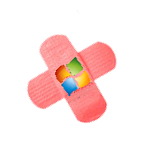 Microsoft has pulled its MS13-061 Exchange patch. After reports of content damage to Exchange Server 2013 after deployment, Microsoft has withdrawn the MS13-061 update for Exchange Server released this past Tuesday. MS013-61 is very important because it allows someone to send an email and get arbitrary code to run on the Exchange server itself. It’s already publicly disclosed so expect the bad guys to move on this quickly.
Microsoft has pulled its MS13-061 Exchange patch. After reports of content damage to Exchange Server 2013 after deployment, Microsoft has withdrawn the MS13-061 update for Exchange Server released this past Tuesday. MS013-61 is very important because it allows someone to send an email and get arbitrary code to run on the Exchange server itself. It’s already publicly disclosed so expect the bad guys to move on this quickly.
Problems do not affect Exchange Server 2007 or 2010 and Microsoft says that those versions can proceed with testing and deployment. In the meantime, they have removed the patch from Windows Update and other distribution systems.
Knowledge Base article KB2874216 explains the problem in more detail and provides remediation guidance.
Problems:
- The content index (CI) for mailbox databases shows “Failed” on the affected server.
- The Microsoft Exchange Search Host Controller service is missing.
- You see a new service that is named “Host Controller service for Exchange.”
The KB article describes 2 registry key changes to make. After rebooting the server, the problem should be bypassed.
That is 2 months in a row that MS has pulled a buggy patch back from distribution.
 Happy Valentines Day everyone. Our vendors are bringing us the gifts of security vulnerability patches. Lots of them. Yes, it’s extra work for our IT teams, but removing these vulnerabilities could mean that we all get to keep our jobs, and remain in business. I was hearing on the news today that Nortel is now
Happy Valentines Day everyone. Our vendors are bringing us the gifts of security vulnerability patches. Lots of them. Yes, it’s extra work for our IT teams, but removing these vulnerabilities could mean that we all get to keep our jobs, and remain in business. I was hearing on the news today that Nortel is now  Microsoft will release 14 bulletins for next Tuesday’s update.
Microsoft will release 14 bulletins for next Tuesday’s update.
 Well, that didn’t take long, did it? Aren’t you glad you took the advice of so many security bloggers and patched December’s out-of-cycle Microsoft ASP.NET Web development platform vulnerability?
Well, that didn’t take long, did it? Aren’t you glad you took the advice of so many security bloggers and patched December’s out-of-cycle Microsoft ASP.NET Web development platform vulnerability?